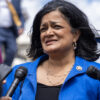Venezuela has issued arrest warrants for three opposition leaders for allegedly trying to destabilize the country’s socialist government and assassinate its president.
These people are Diego Arria, Venezuela’s former ambassador to the United Nations; Pedro Burelli, former external director of Petroleos de Venezuela, the country’s national oil company; and Ricardo Koesling, attorney and prominent member of the democratic opposition.
The accused opposition leaders have denied the accusations. Burelli, who has lived in exile in the United States for the past 10 years, claims that the e-mails presented by the government were forged. All of the accounts in the e-mails shown as evidence belong to Google. To prove the innocence of everyone accused, Burelli, under the guidance of his lawyers, has sought Google’s help.
This is not the first time opposition leaders have been accused and arrested on groundless charges. When Leopoldo Lopez, prominent leader of Venezuela’s democratic opposition, was arrested on charges of arson, homicide, and terrorism. Amnesty International called the arrest a “politically motivated attempt to silence dissent in the country.” He’s been kept in solitary confinement in a military prison since turning himself in to authorities in late February.
While Maduro’s government has been effective in arresting Venezuelan democratic advocates on baseless charges, it has neglected the country’s economic and security situation. Inflation reached an all-time high of 62 percent this past April. Oil prices have fallen to less than $100 per barrel, and the International Monetary Fund predicts that Venezuela’s economy will contract by 0.5 percent. Heritage’s annual Index of Economic Freedom, published jointly with The Wall Street Journal, ranks Venezuela as the 174th freest economy, ahead of only Zimbabwe, Cuba, and North Korea.
The Venezuelan government has repeatedly made unfounded accusations against the democratic opposition. Since Hugo Chavez came to power, the Venezuelan government has claimed approximately 63 times that the opposition is plotting to kill the president. Maduro, who has barely been in office one year, has accused them of planning more than five assassination attempts against him.
The latest accusations came as the House of Representatives passed a bill to impose sanctions on Venezuelan officials who were involved in human rights abuses during the protests in February. The Senate is also considering sanctions, but the Obama Administration is under the false impression that more time is needed for other Latin American countries to broker negotiations between the Venezuelan government and the opposition.
Some members of the opposition have claimed that these baseless allegations are part of President Nicolas Maduro’s effort to distract Venezuelans from the sanctions and the country’s economic problems in order to regain their approval and support. According to a recent poll by Datanalisis, Maduro’s approval rating dropped to 38.9 percent in May.
The Obama Administration should offer its support to our democratic partners, the opposition leaders, instead of inadvertently to Maduro’s corrupt government. It should promote democracy and support targeted sanctions against Venezuelan human rights violators.
Andrea Rodriguez is currently a member of the Young Leaders Program at The Heritage Foundation. For more information on interning at Heritage, please click here.



























